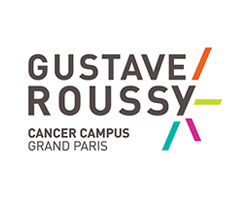Rare and private spliceosomal gene mutations drive partial, complete, and dual phenocopies of hotspot alterations
Résumé
Genes encoding the RNA splicing factors SF3B1, SRSF2, and U2AF1 are subject to frequent missense mutations in clonal hematopoiesis and diverse neoplastic diseases. Most "spliceosomal" mutations affect specific hotspot residues, resulting in splicing changes that promote disease pathophysiology. However, a subset of patients carry spliceosomal mutations that affect non-hotspot residues, whose potential functional contributions to disease are unstudied. Here, we undertook a systematic characterization of diverse rare and private spliceosomal mutations to infer their likely disease relevance. We utilized isogenic cell lines and primary patient materials to discover that 11 of 14 studied rare and private mutations in SRSF2 and U2AF1 induced distinct splicing alterations, including partially or completely phenocopying the alterations in exon and splice site recognition induced by hotspot mutations or driving "dual" phenocopies that mimicked two co-occurring hotspot mutations. Our data suggest that many rare and private spliceosomal mutations contribute to disease pathogenesis and illustrate the utility of molecular assays to inform precision medicine by inferring the potential disease relevance of newly discovered mutations.
Domaines
Sciences du Vivant [q-bio]| Origine | Fichiers éditeurs autorisés sur une archive ouverte |
|---|

